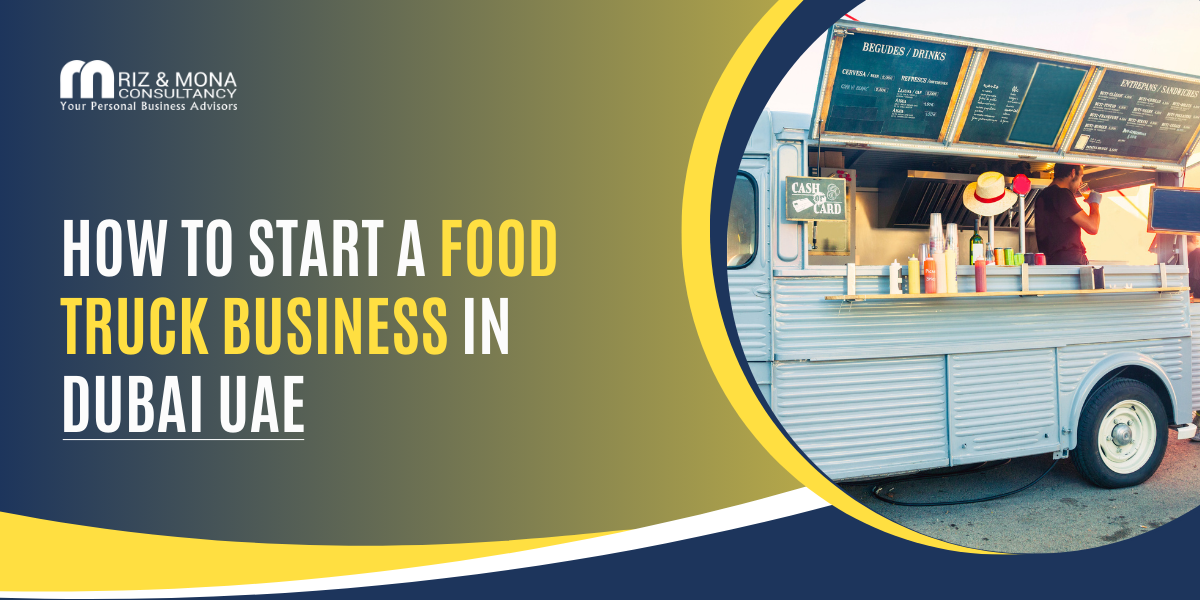Benefits of Running a Food Truck Business in Dubai & Its Legal Framework
Dubai’s food truck industry isn’t just about affordability, it’s a smart, flexible business model in a city built for innovation and tourism. Let’s look at the benefits food truck business and why it’s a profitable, flexible alternative to traditional restaurants in Dubai.:
Lower Investment, Higher Flexibility
- Lower Startup Costs – Opening a restaurant in Dubai can cost anywhere from AED 500,000 to AED 1 million, while a food truck can start at around AED 150,000 to AED 400,000 (including licenses, truck setup, and equipment).
- Fewer Overhead Costs – Unlike a restaurant, a food truck doesn’t require rent, utility bills, or a large staff, keeping expenses low.
- Mobility = More Sales – If one location isn’t working, you can move to a better spot. This flexibility helps adapt to customer demand.
- Seasonal Advantage – During Dubai’s cooler months (October–April), food trucks see a big boost in outdoor sales at beaches, events, and festivals.
Why Dubai is the Ideal Market for Food Truck Entrepreneurs
- Strong Demand for Street Food – Dubai’s residents and tourists love street food, creating a high demand for affordable, high-quality meals on the go.
- Supportive Business Environment – The government has made it easier for food trucks to operate by offering clear licensing procedures and designated food truck zones.
- High Tourist Footfall – Dubai welcomes over 14 million tourists annually, many of whom prefer quick and unique dining experiences over expensive restaurants.
- Thriving Events & Festivals – Dubai hosts major events like Expo City Dubai, Global Village, and food festivals, giving food trucks a chance to make huge profits.
- Social Media Marketing Power – Many food trucks in Dubai gain popularity through Instagram, TikTok, and Google Maps, attracting customers without spending on traditional advertising.
Starting a food truck in Dubai requires approvals from multiple government authorities, including the Department of Economic Development (DED), Dubai Municipality, and the Roads and Transport Authority (RTA). You must obtain a food truck license, food safety permits, and location approvals before you can operate legally.
Food Truck Business License in Dubai: What You Need to Know
A business license from DED is mandatory to register your food truck as a legal entity. Operating without this license can result in fines or business closure.
Trade License vs. Food Truck Permit: What’s the Difference?
- Trade License (DED): Establishes your food truck as a legitimate business.
- Food Truck Permit (Dubai Municipality): Ensures compliance with food safety regulations.
Both are required to legally run a food truck in Dubai.
Dubai Municipality Regulations and Required Approvals
Dubai Municipality oversees food safety, vehicle modifications, and location permissions. To get approval, you must:
- Pass Food Safety Checks: Your menu and food handling must comply with the UAE Food Code.
- Obtain Truck Design Approval: The interior must have proper storage, ventilation, and hygiene systems.
- Get Location Permits: You can’t operate anywhere without approval—some areas require additional permits.
A final municipality inspection is necessary before you can officially start serving customers.
Step-by-Step Guide to Starting a Food Truck Business in Dubai, UAE
Registering Your Food Truck – The Complete Process
Before anything else, you need to officially register your business with the Department of Economic Development (DED). This includes:
- Choosing a Business Structure – You can register as a Sole Proprietorship, Limited Liability Company (LLC), or Civil Company. Most food truck owners opt for an LLC to protect personal assets.
- Selecting a Trade Name – Your business name must comply with UAE regulations (no offensive words, religious references, or existing trademarks).
- Applying for Initial Approval – Submit your business model and concept to DED for preliminary approval.
Once these steps are completed, you can move forward with obtaining your licenses and permits.
Business Setup in Dubai – Choosing the Right Legal Structure
Dubai allows local and foreign investors to start food truck businesses, but the ownership structure varies:
- UAE Nationals can have 100% ownership.
- Foreigners may require a local sponsor or set up under Dubai’s free zone business structure, depending on their chosen jurisdiction.
The most common choice is an LLC with a UAE national as a partner, but new reforms have made it easier for expats to own 100% of their businesses in certain sectors.
Getting Your Food Truck License & Permits
To operate legally, you need multiple approvals:
- Trade License (from DED) – Grants official business status.
- Food Truck Permit (from Dubai Municipality) – Ensures compliance with food safety and hygiene regulations.
- Vehicle Modification Approval (from RTA) – Your truck must be modified to meet Dubai’s road and health standards.
- Location Permit – Required for setting up in specific areas like beaches, parks, or private events.
Skipping any of these steps can result in fines, legal action, or business closure, so it’s crucial to get everything in order before launching.
Understanding Non-Mobile vs. Non-Event Food Trucks
Dubai classifies food trucks into two main categories:
- Mobile Food Trucks – These can operate in approved public and private locations, but movement is subject to specific rules.
- Non-Mobile / Non-Event Food Trucks – These are stationed at fixed locations like private venues, business districts, or festivals under long-term agreements.
Each type requires different permits, so your business model will determine which approvals you need.
Final Approvals & Inspection
Before you hit the streets, Dubai Municipality must inspect your truck to ensure:
- Proper kitchen layout, ventilation, and waste disposal.
- Compliance with UAE Food Code safety standards.
- Safe food storage and hygiene measures.
Once you pass the final inspection, you’ll receive your operating license, and you’re officially in business!
Start Your Business Journey with Our Professional Support!
Costs and Financial Planning
Understanding the various costs involved, from licensing to operational expenses, is crucial for a sustainable business model.
| Category | Cost Range (AED) |
|---|---|
| Trade License (DED) | 13,000 – 19,000 |
| Food Truck Permit (Dubai Municipality) | 200 (Annual) |
| HACCP Certification | Around 10,000 |
| Food Truck Purchase & Customization | 50,000 – 150,000+ |
| Kitchen Equipment | 30,000 – 80,000 |
| Branding & Signage | 10,000 – 30,000 |
| POS System & Technology | 5,000 – 15,000 |
| Initial Inventory | 5,000 – 20,000 |
| Insurance & Legal Fees | 3,000 – 10,000 |
| Staff Salaries & Visa Fees | 5,000 per employee |
| Marketing & Promotions | 5,000 – 15,000 per month |
| Maintenance & Repairs | 1,000 – 5,000 per month |
| Seasonal Variations | Varies (reserve funds needed) |
| Total Estimated Initial Investment | 150,000 – 400,000 |
Creating a Winning Food Truck Concept
Dubai’s food truck industry is competitive, so having a strong concept is key. Your food must appeal to the city’s diverse crowd while standing out from the competition.
Choosing the Right Type of Food for Dubai’s Market
Dubai’s food business has a mix of locals, expats, and tourists, each with different food preferences. The most successful food trucks focus on:
- Popular Street Foods – Arabic dishes like shawarma, falafel, and manakish always do well. Burgers, tacos, and fried chicken are also big sellers.
- Trendy & Health-Focused Options – There’s a growing demand for vegan, keto, and organic food options. Many customers prefer gluten-free and dairy-free alternatives.
- Unique Fusion Dishes – Mixing cuisines can attract attention. Examples include Korean BBQ tacos, sushi burritos, or Middle Eastern-inspired pizzas.
Developing a Unique and Profitable Food Truck Concept
To stand out, your food truck needs more than just great food—it needs a clear concept. Here’s what makes a food truck successful:
- Find Your Niche – Don’t try to sell everything. Choose one theme (like gourmet grilled cheese or fresh seafood tacos) and do it really well.
- Quality Over Quantity – A short menu with well-made, fresh ingredients is better than a long menu with average food.
- Branding & Experience Matter – Your truck’s name, design, and social media presence should be memorable. Customers love food trucks with cool designs, fun packaging, and Instagram-worthy dishes.
Location Strategy: Where to Operate Your Food Truck
Even with great food, your success depends on where you park. Dubai has strict location rules for food trucks, and choosing the right spot can make or break your business.
- Beaches & Tourist Areas – Places like Kite Beach, JBR, and La Mer attract locals and tourists looking for quick, tasty meals.
- Business Districts – Areas like DIFC, Business Bay, and Dubai Internet City have office workers who want fast, high-quality lunch options.
- Events & Festivals – Dubai hosts food festivals, concerts, and sports events where food trucks make huge sales. Applying early for event permits is key.
- Malls & Shopping Centers – Some malls like Dubai Mall and Mall of the Emirates allow food trucks in their outdoor spaces, bringing heavy foot traffic.
- Residential Communities – Some gated communities and compounds allow food trucks on specific days. This is a great option for steady, repeat customers.
How to Set Up Your Food Truck for Maximum Visibility and Sales
Once you secure a location, here’s how to make the most of it:
- Position Your Truck Wisely – Park where people naturally walk by, not hidden in a corner. Make sure your truck is facing the crowd, not the road.
- Use Bright & Clear Signage – Your menu should be easy to read from a distance. Highlight best-sellers to help people decide fast.
- Leverage Social Media – Use Instagram and Google Maps to tell customers where you’re parked. Regular updates help attract a loyal following.
- Offer Online Ordering – Apps like Deliveroo and Talabat allow customers to order in advance, reducing wait times and increasing sales.
- Collaborate with Nearby Businesses – Partnering with gyms, offices, or coffee shops nearby can bring more customers your way.
FAQS (Frequently Asked Questions)
Can I operate multiple food trucks under the same license?
No, each food truck requires its own license and approvals from Dubai Municipality and RTA.
Do I need local sponsorship to start a food truck business in Dubai?
No, recent reforms allow 100% foreign ownership, but certain setups may still require a local service agent.
How long does it take to get all the permits for a food truck business?
The full process, including business registration, approvals, and inspections, typically takes 4 to 8 weeks.
Is the food truck business in Dubai profitable?
Yes, food trucks in high-traffic areas can generate strong profits due to lower overhead and high demand for street food.
What type of kitchen equipment is required for a food truck in Dubai?
You need stainless steel workstations, commercial refrigeration, ventilation systems, fire suppression, and waste disposal units, all approved by Dubai Municipality.
Can a food truck serve alcohol in Dubai?
No, food trucks cannot serve alcohol, as a liquor license is only issued to restaurants and hotels meeting specific criteria.
Are there restrictions on the type of food a truck can sell?
Yes, your menu must comply with Dubai Municipality’s food safety regulations, and high-risk foods (e.g., raw seafood, unpasteurized dairy) may require extra approvals.












